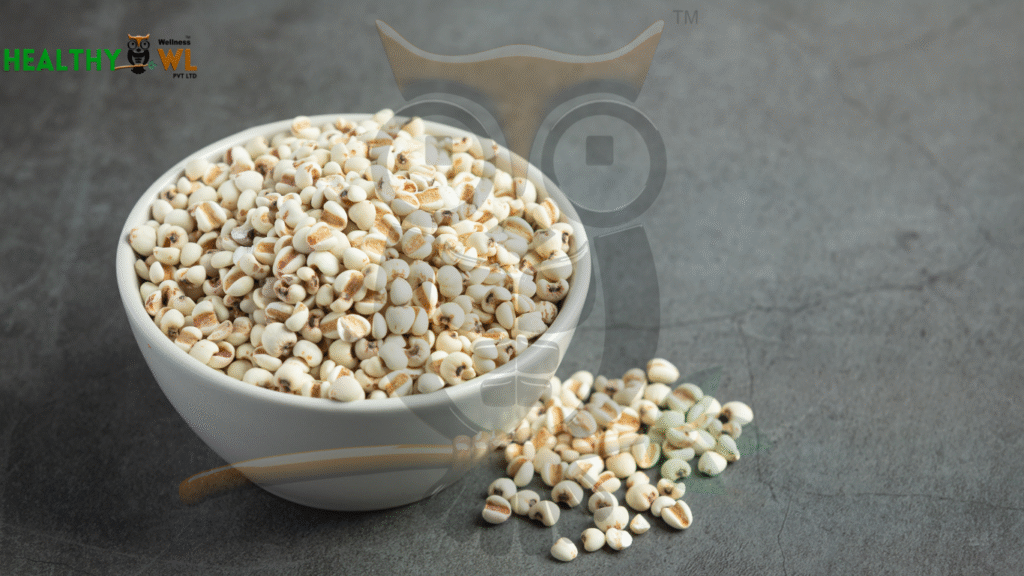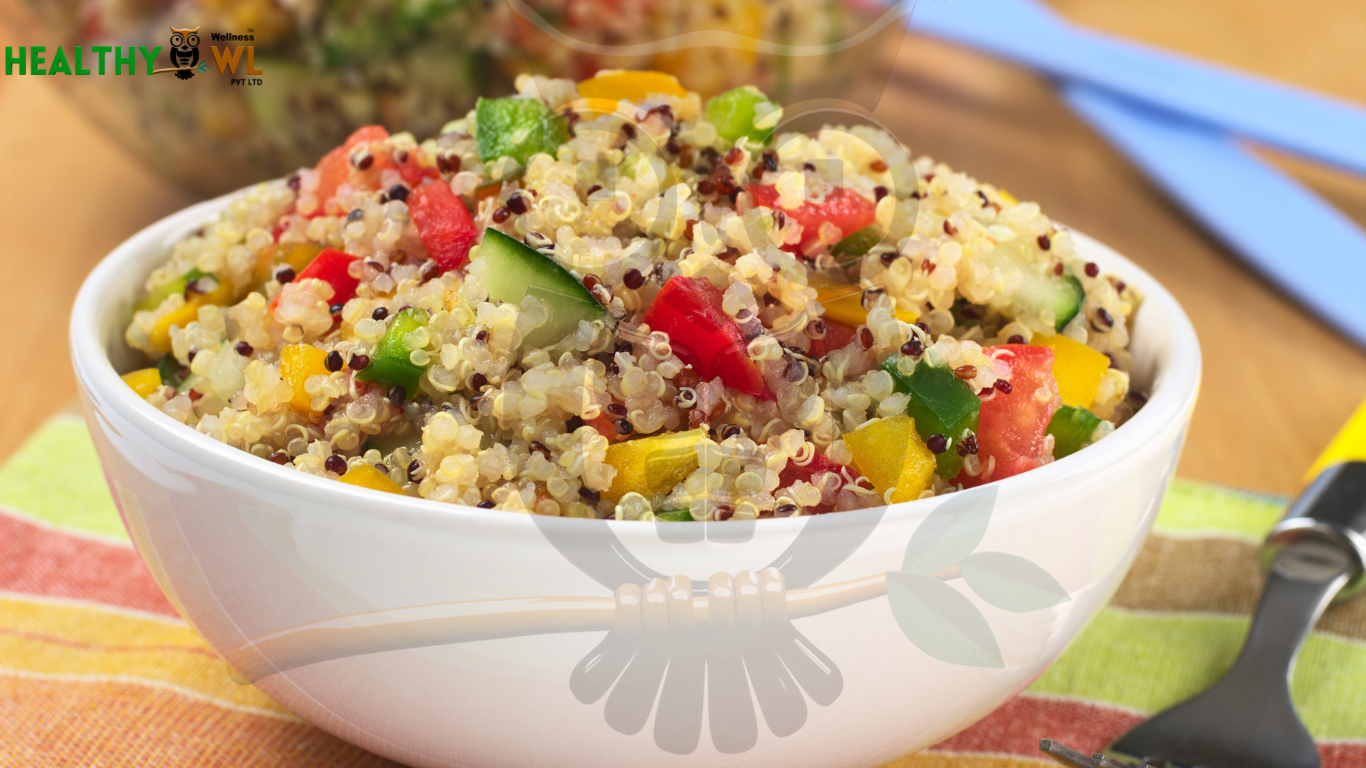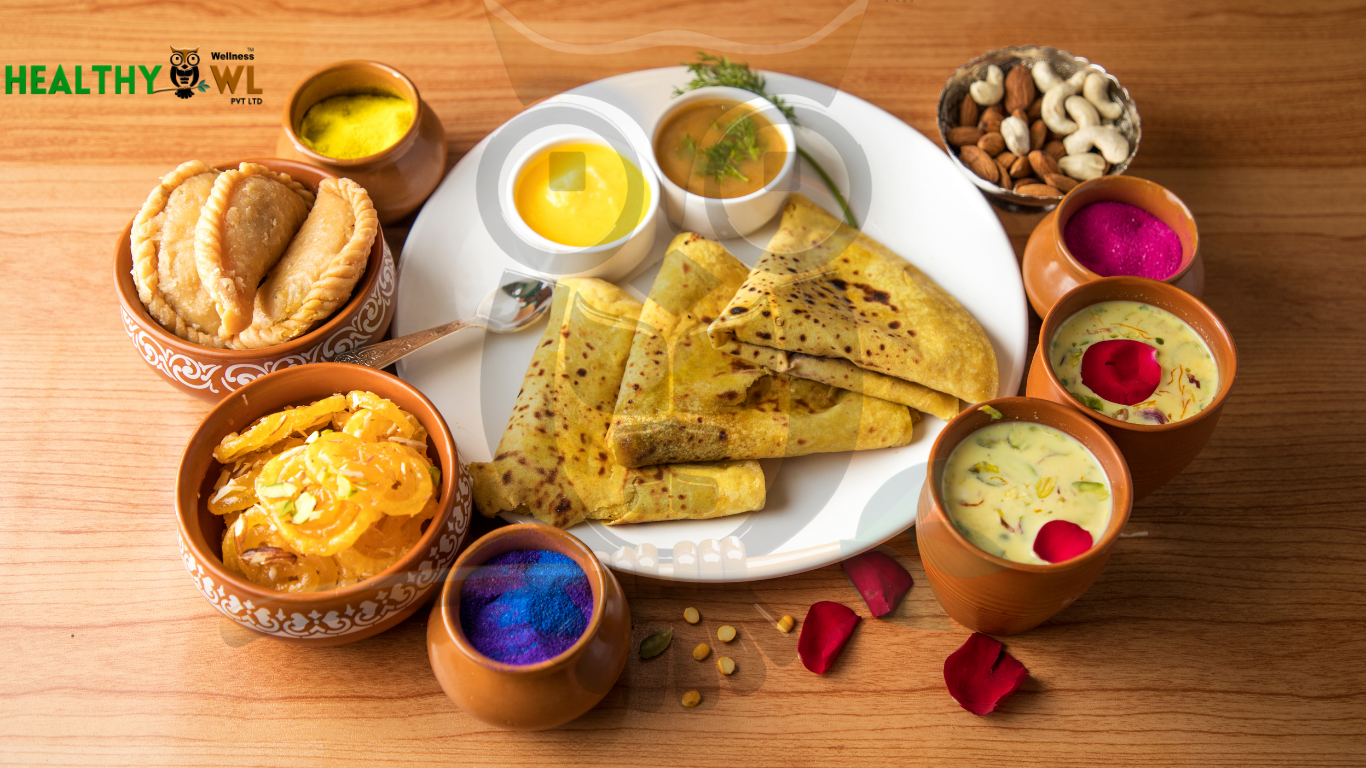Mahavir Jayanti is not just a time for celebration, but also for reflection and spiritual rejuvenation. As followers of Jainism observe the birth anniversary of Lord Mahavir, they are encouraged to embrace his teachings of non-violence, compassion, and self-discipline. Along with spiritual devotion, it’s equally important to take care of one’s health during the festivities. Maintaining physical well-being while observing religious practices doesn’t have to be difficult—it just requires a mindful approach. Let’s dive into how you can stay healthy during Mahavir Jayanti without compromising on your spiritual or physical well-being.
1. Opt for Light and Balanced Meals
Mahavir Jayanti often involves fasting or consuming a sattvic (pure) diet that excludes onions, garlic, and other root vegetables. To ensure you stay energized while adhering to these dietary restrictions, consider the following:
- Incorporate Fresh Fruits and Vegetables: Opt for fresh, seasonal fruits like apples, bananas, and pomegranates. Leafy greens, gourds, and tomatoes can be included in meals for added nutrients.
- Whole Grains for Sustained Energy: Foods like quinoa, brown rice, and amaranth provide a steady source of energy while being easy on digestion. These grains are also rich in fiber, which helps regulate digestion and keep you full for longer periods.
- Nutrient-Packed Dals and Lentils: Moong dal (mung beans), urad dal, and split peas can be cooked into simple soups or stews, offering protein and essential micronutrients. These are easily digestible and align with traditional Jain dietary practices.
2. Stay Hydrated and Detox
Fasting and restricted eating can sometimes lead to dehydration or fatigue. To stay refreshed and energized throughout the day, prioritize hydration:
- Water: Drink plenty of water, especially if you’re fasting for extended periods. Aim for at least 8-10 glasses a day to flush out toxins and support overall body function.
- Coconut Water: A natural hydrator, coconut water is rich in electrolytes and can help restore energy levels during fasting.
- Herbal Teas: Ginger, mint, and tulsi (holy basil) teas are great for digestion and can be consumed throughout the day to boost metabolism and promote relaxation.
3. Incorporate Simple Physical Activity
While Mahavir Jayanti is a time for prayer and reflection, incorporating some light physical activity can help maintain your physical health:
- Yoga and Stretching: Practicing yoga in the morning can help you stay grounded and energized throughout the day. Gentle stretches can also improve circulation and help release tension from long periods of sitting during prayer.
- Mindful Walking: Walking is a low-impact activity that can be done in a mindful, meditative manner. A short walk after meals can improve digestion and provide some mental clarity during your spiritual practice.
4. Prioritize Mental Well-being
The teachings of Lord Mahavir encourage peace, compassion, and non-attachment. This is the perfect time to focus on your mental health as well:
- Seva (Selfless Service): Engage in acts of Seva, such as helping others in need or volunteering within your community. Seva not only aligns with Lord Mahavir’s teachings of compassion but also promotes mental wellness by fostering a sense of purpose and non-attachment.
- Meditation and Mindfulness: Begin your day with a short meditation to calm your mind and center your thoughts. This practice can enhance your focus and make you more mindful of your actions throughout the day.
- Gratitude Practice: Take a moment each day to express gratitude for the spiritual and physical nourishment you receive. A gratitude practice helps promote mental peace and mindfulness, allowing you to fully appreciate the significance of the festival.
- Journaling: Reflect on your spiritual journey by writing in a journal. This can help you stay present and connected to your personal growth while honoring Lord Mahavir’s principles of inner harmony.
- Deep Breathing Exercises: Take a few minutes throughout the day to practice deep breathing exercises. This can help lower stress levels and improve overall emotional well-being, especially during fasting or religious rituals.
5. Thoughtful Eating for Wellness
The celebration of Mahavir Jayanti often includes communal meals or prasadam (religious offerings). While enjoying these meals, it’s important to maintain a healthy balance:
- Moderate Portions: Be mindful of portion sizes, especially when consuming heavier foods or sweets. Eating in moderation will help prevent indigestion and keep your energy levels steady.
- Choose Natural Sweeteners: If you’re preparing or enjoying sweets, consider using natural sweeteners like jaggery or dates, which are gentler on your blood sugar levels compared to refined sugar.
- Opt for Healthy Fats: Use ghee or cold-pressed oils like coconut or sesame oil in your meals. These fats are nourishing, easy to digest, and offer essential fatty acids that support brain and heart health.
6. Rest and Recovery
Religious observances can sometimes be taxing on the body, especially when fasting is involved. To ensure that your body stays healthy during this time, prioritize rest:
- Get Enough Sleep: Aim for at least 7-8 hours of sleep to support your body’s recovery and keep your immune system strong.
- Listen to Your Body: Fasting or eating lighter meals can sometimes cause fatigue. Take breaks when needed and don’t hesitate to modify your diet if you feel unwell. Honor your body’s signals and give it the rest it needs to recover.
Conclusion
Mahavir Jayanti is a time for both spiritual and physical renewal. By following these health-conscious practices, you can honor Lord Mahavir’s teachings while keeping your body and mind in balance. Through mindful eating, gentle activity, and mental well-being practices like Seva and gratitude, you can stay energized and healthy while observing the sacred traditions of this special day.
Looking for more tips on maintaining wellness during religious observances?
Contact Healthy Owl Wellness for personalized guidance that aligns with your spiritual and health goals.
Sources:
- Healthy Fasting Practices for Jain Festivals
- Tips for Maintaining Energy and Wellness During Spiritual Fasting
- The Role of Mindful Eating in Physical and Spiritual Health












